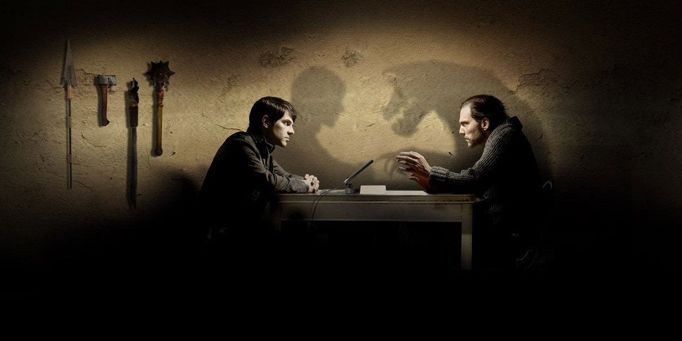
Grimm: TV Review
Evil can lurk in the most loveable of faces.
Grimm has an undeniably grim take on life: there are monsters lurking in the cupboard, in your carport, in the cafeteria at work. But the darker the scene, the greater its insistence that we need help to face the evil in everyday life.
Grimm is a new American import for Australia's Seven Network that is set in Portland, Oregon, one of the darker, damper states of north-western America. Nick Burkhardt is a detective attached to the small-scale city police department whose life is about to change forever, though not in the way he thinks. On the night he plans to propose to his girlfriend, the aunt who raised him after his parents died appears on his doorstep to tell him he’s not who he thinks he is. Burkhardt learns he is a grimm – one of a select number of human beings who can see the monsters masquerading as normal people amongst us. Werewolves, vampires, succubae, witches – in fact everything the Brothers Grimm tried to warn people about are actually real. With his new-found sight, Burkhardt’s murder investigations are set to become a lot more interesting.
We shouldn't be surprised by evil
Grimm is at its heart a police procedural drama following firmly in the footsteps of other fairy-tale thrillers like Supernatural and Once Upon A Time, though it’s decidedly more … well, grim than the later.
To begin with, programs like Grimm offer a worldview that suggests evil can lurk behind the most loveable of faces. It’s the same sort of wisdom the writers of the Proverbs offered to young men tempted by beautiful women with loose morals:
Do not let your heart turn to her ways or stray into her paths. Many are the victims she has brought down; her slain are a mighty throng. Her house is a highway to the grave, leading down to the chambers of death.
In fact, evil is something that would be staring us in the face if we only had the eyes to see it, like detective Burkhardt. One wonders what horrors would appear if we could look on people with the same God-like vision.
On top of this, Grimm suggests we shouldn’t be surprised by evil. We’ve had enough warnings; pretending that they were only fairy tales will hardly help us when bad things begin to happen. The episodes suggest that fantastic stories, however unbelievable they seem, endure because they are based in fact – something worth reminding skeptical teens of when it comes to considering the life, death and resurrection of Jesus Christ. And furthermore, Grimm maintains that we’re not capable of dealing with evil on our own. We need a champion and Burkhardt steps in for his close-up, but he’s limited by his knowledge as well as time and space. A real saviour has to not only be omniscient but omnipresent if he’s to be any use to us.
Grimm has a certain quirkiness about some of the characters that suggests it could develop a tongue-in-cheek dimension like Buffy The Vampire Slayer. Of course it has a long way to go before it can claim the crown from that ratings juggernaut, but NBC has already commissioned a second series that is airing in the United States. Look out for it when Seven goes searching for more holiday programming at the end of 2013.
Watching Grimm with your kids:
Given that we’re dealing with villains that like to eat people I wouldn’t recommend the series as suitable for anyone below senior high school. But given that there are teenagers who like to stay up and watch this sort of thing, as a parent I’d consider sharing a blanket with any who might be a bit skittish and engaging in a little follow-on conversation. Here's some questions you could ask:
- Imagine you could see what people were really like underneath – how do you think the world would look?
- What if you looked in a mirror – would you look better or worse?
- There’s no talk about rehabilitating evil in Grimm. It has to be gotten rid of. So how do you get rid of the evil inside?
For more articles from Growing Faith, subscribe to our monthly e-newsletter.
To hear about the latest books and resources from Youthworks Media, subscribe here.




